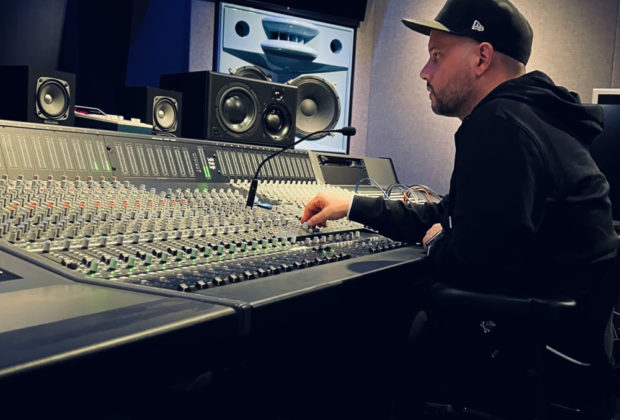Getting a job in the music industry doesn't necessarily require that you have a degree in music.
It's possible to work in the industry as a music journalist, conductor, music producer or even a songwriter.
Become a Music Producer
Getting into the music industry is a tough nut to crack. It takes time and a lot of hard work. But it is possible to make a living as a music producer. You just need to know where to look.
The best place to start is by networking. You can build your network by hanging out at a music club, or by hanging out with musicians. You can also look for other music producers online or through social networks.
The internet has made it a lot easier to find a music producer. You can even start conversations with them via Instagram. You might want to check out the SoundCloud threads for music producers.
The best music producer will have soft skills and know Pro Tools inside and out. However, some producers can make world-class music with a limited set of tools.
They also offer advice on what songs to cut, what changes to make, and what instruments to use. A good producer must help a band create high-quality music that will impress the fans.
The best music producer will be the one who can help you make a hit record. But you should be careful who you hire. Some producers simply want to sell you beats, and don't offer much else.
The best music producer is the one who has the best talent and the most dedication.
Getting into the music industry isn't easy, and you might not be the next Max Martin. But with a little luck and perseverance, you'll be able to land a gig.
Become a Music Journalist
Become a music journalist and you will be connected to a wide variety of artists, musicians, and music enthusiasts.
You can start your career as a freelance journalist or as an in-house staff member at a music magazine. You may get to travel to music festivals and perform interviews with artists.
The job of a music journalist involves a lot of research. You may need to read up on music theory or check out the latest releases. It’s worth it – You may even get to interview some of your favorite artists!
A music journalist is responsible for writing an opinion piece, interviewing a musician or writing up a live show. The best way to get started is by learning how to research music. Some music critics also mine the underground for new talent so there’s some responsibility involved and you might make a change in the world mainstream.
Becoming a music journalist is a challenging job that takes a lot of discipline and time management. But this goes with every job. However, this is a highly competitive industry, you’ll face slightly more competition than in a majority of other careers.
You can get educated for music journalism. Some universities offer a pure music journalism BA course, while others offer courses in music and journalism.
You can also find internships. Internships offer you a chance to learn about the music industry and help you get a leg up on your competition.
Become a Music Editor
You may also be able to get a job as an editor. A music editor's job is to provide a qualitative summary of music releases and performances. It may even be a good idea to intern at a music magazine for a short time.
You can also write up shows and send your work to a local newspaper or arts editor. It is also a good idea to create a blog and upload your own music-related articles. This will give you more visibility, and will also help you build a portfolio of music-related work.
The job of a music journalist can be rewarding. The pay is good, and usually, you may be able to work remotely from home when needed.
Become a conductor
Whether you're already a talented musician or just aspiring to be one, becoming a conductor in the music industry requires years of study and practice.
A good conductor is charismatic, insightful and communicative. He or she must know a lot about music, music history, music theory and ensemble playing.
Conductors work with orchestras, choirs, chamber groups and other performing ensembles. They decide what music to play, select performers, and shape the ensemble's interpretation of the music. They also lead rehearsals, plan the concert season, and promote the ensemble's performances.
Conductors usually work in orchestras and opera houses, but they also perform freelance session work. They may also appear on television talk shows to promote their performances.
The first professional conducting experience is usually with a youth orchestra, assistant conductor or college orchestra. As you gain experience, you may advance to conductor roles with a more prestigious ensemble.
The conductor's work schedule varies depending on the live performance schedule. They may lead rehearsals and practice sessions, or they may work promotional events at night.
Conductors also need to be business savvy. They have to understand how to promote their ensemble's performances and how to sell tickets. They may also have to make organizational decisions.
They may decide which scores to perform, and when to adjust them. They also may choose solo or guest performers.
Conductors must be able to inspire the fine qualities of ensemble playing. They must also understand how to lead, motivate and encourage their performers. If you’re a good team leader, you might find pursuing a conductor career beneficial!
Become a Songwriter
Becoming a songwriter in the music industry without being a musician may sound like a dream, and yes, it can be difficult to get started. The industry is highly competitive, and it takes a lot of work to break in.
It is important to develop a strong songwriting structure and learn music theory. The best songs come from the heart. It's important to write about a life experience that moves you, and offer sincere emotional insight.
One way to earn money as a songwriter is to write for other artists. This includes writing songs for radio and television shows, and movies. The songs you write for other artists will earn you mechanical and performance royalties. You will also receive upfront fees and sync opportunities.
Prepare yourself to write a lot. You will need to work on your craft, and you will need to learn how to network. You will also need to perform often, as performing will help you test your material.
You may also want to consider joining a community of songwriters. There are some great Facebook groups for major US cities, and there are also professional groups that are geared toward helping songwriters.
You should also take a class or two in music theory. You can get a basic chord progression, which will open up the whole world of songwriting. You should also listen to a variety of music. This will help you to develop new inspiration.
Many music success stories involve a pop star and songwriter. If you have the right skills, you may find yourself in the center of the music industry in a city like Los Angeles or London.
Conclusion
If you love music but don't want to be a musician, there are still plenty of ways you can work in the music industry. Working in the music industry can mean anything from being an A&R scout, to working in radio broadcasting, or being a tour manager for bands on the road.
After some hard time, with the right education and experience, you can find yourself in a rewarding career that allows you to stay close to the music you love. –By Charles Mello














